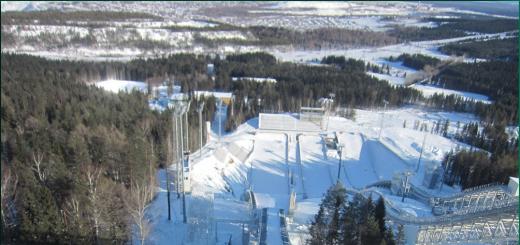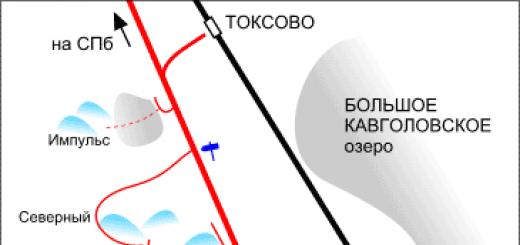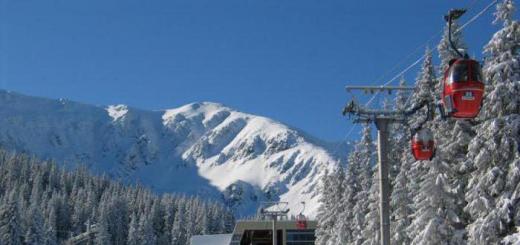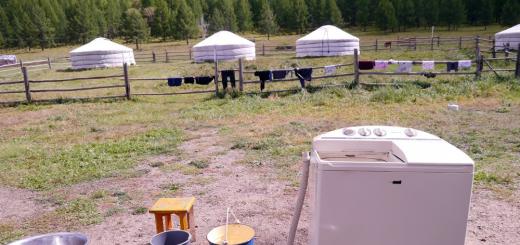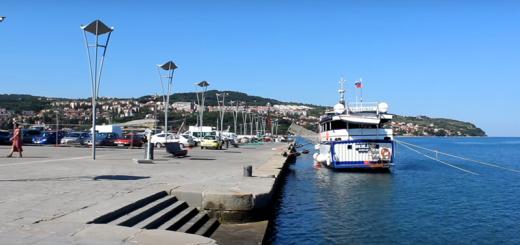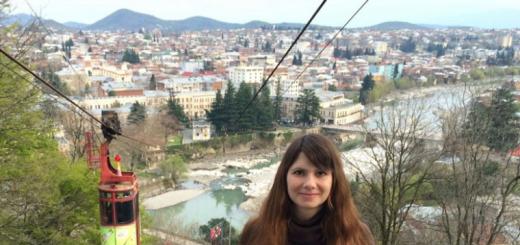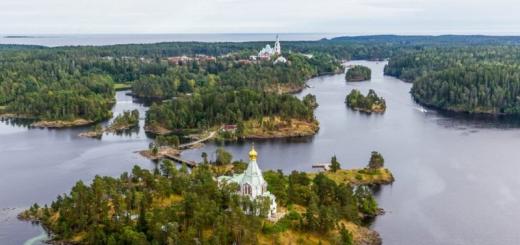The village of Pshada is located in the valley of the river of the same name Krasnodar Territory, famous natural resources, but still underdeveloped by tourists. He is surrounded Caucasus mountains, densely covered with emerald greenery and hiding picturesque waterfalls and mysterious dolmens. The village is also famous for its fruit trees and amazing honey. The incredibly clean air is filled with enchanting aromas - it is impossible to breathe in them.
Where is the village of Pshada located on the map?
It is located on the M-4 highway, between Gelendzhik and Arkhipo-Osipovka. The nearest villages are Mikhailovsky Pass and Beregovoe. Geographically, all this is the Gelendzhik urban district in the Krasnodar Territory.
Rest in Pshad. Hotels and hostels, recreation centers
Among the riot of vegetation, various structures are lurking, ready to receive guests. As a rule, when choosing a hotel or accommodation in the private sector, tourists are guided by the reviews of guests.
"Filippovskaya"
One of the most popular is the Filippovskaya private hotel. It is located on the border with the forest, one of the buildings is adjacent to the Mother's Heart dolmen, and the second is conveniently located on the shore of a private pond. Visitors are presented with rooms of various categories - from small economy-class rooms to spacious "suites".
Each is furnished with comfortable furniture and everything you need for a carefree vacation. On the territory there is free wireless Internet, car parking, nice gazebos. A cedar bath, fishing or a picnic by the barbecue will diversify your rest. The presence of a large hall and a spacious area allows you to organize family celebrations and mass gatherings.

Mini-hotel on Kubanskaya
Visitors can find economy class rooms in a two-story Guest house, which is located on Kubanskaya street. The rooms will be without frills, but clean and comfortable. There is an equipped kitchen, so everyone can prepare their own food. There is a starting point for everything in front of the courtyard, you don't have to go far or look for an experienced escort.
"Rancho Pshada"
For lovers of complete unity with nature, there are car campsites. "Rancho Pshada" is located on the bank of the river in the shade of fresh mountain greenery. This place allows you to renounce civilization for a certain period of time and stay with Mother Nature one on one, to be saturated with her energy.
However, you will be surrounded by neighbors, you can make an acquaintance and spend time together by the fire. The atmosphere is friendly. Discos are held in the evenings, while horseback riding, paintball and quad biking are held in the afternoon. Since lovers " wild rest»Most often travel by private car, that is, there is also a parking area.
The private sector of Pshada will also give a lot of offers - in the village in holiday season for rent a variety of housing, from apartments and rooms to whole houses, completely ready to receive holidaymakers.
Attractions and entertainment of Pshada. What to see?
The most interesting attraction here are tiny houses of unknown origin. There are about 70 mysterious objects in the vicinity of the village. On both sides of the local river, you can stumble upon at least 28 pieces. have some peculiarities. There are no patterns on them, and the front plate is trapezoidal and covered with a canopy. Amazing monuments of the Neolithic era date back to the 3rd century BC, they have amazing energy and are shrouded in many secrets.

It is believed that some of them can bring good luck in love, contribute to overall success and have a beneficial effect on health. To preserve the centuries-old monuments, the Dolmen Farm was organized, which made it possible to refine the approaches to the buildings and protect them from vandals. Searching for such objects on your own often resembles a game or a quest, which is an excellent pastime for a company of like-minded people.
Here, in the Pshada valley, there are picturesque ones. There are about a hundred of them, but not all of them can be reached as part of an excursion group. The most popular are thirteen Pshad waterfalls, located on a stretch of only 1 kilometer. They are surrounded by green spaces and amaze with their power and energy. The largest one has a fall height of 9 m.

Photos, of course, will not be able to convey all the beauty of the environment, but they turn out to be very effective. Hiking lovers come here for a few days, admire the mountain river, overcome the gorges, get acquainted with the hard-to-reach cascades of the village of Pshada. It is worth looking into the abandoned Kholodny Brook farm, wandering among the ruined buildings, engulfed in greenery.
Where else to go?
Orthodox are attracted by the oldest parish in the North Caucasus - the Church of the Holy Great Martyr Demetrius of Thessaloniki. Founded over 150 years ago. The territory has its own apiary, tea drinking, tasting and sale of honey are held. There is a Sunday school. This region is generally famous for its apiaries and high-quality honey of various varieties. You can buy a jar of goodies at the entrance to the village, right on the highway, at the market or at special sites.

It will not be superfluous to get acquainted with the House of Culture, where local craftsmen will show master classes to tourists. For more than half a century, its doors have been open to visitors. Various performances and exhibitions are held here. For complete relaxation, it is worth visiting the Yin-Yang recreation park. It is spread out on the outskirts of the village. Pshada, near the river and forest. There are wonderful picnic spots here. You can rent a gazebo, barbecue or order ready-made meals. Free time it is not difficult to devote to medical procedures. At your service are mud baths, phyto and wine barrels, relaxing massage and peeling with special fish.
The male part of the tourist stream is attracted by the good old fishing, because in Pshad there are two picturesque ponds with different types of fish. The banks of the reservoirs are equipped with special bridges, and tackles can be rented. At the request of vacationers, horseback riding is organized and teams are assembled to play paintball. After a busy rest, it is not difficult to rent a lodge for the night.
Where can I eat?
Despite the huge number of natural and historical attractions, the infrastructure in Pshad is not at all developed. In the matter of nutrition, it is better to rely on yourself, choose housing with an equipped kitchen unit or dining room. It is recommended to bring your favorite products with you.
How to get (drive) from Gelendzhik?
You can easily get to Pshada by public transport - there are stops here, even a small bus station. Many buses going to Arkhipo-Osipovka stop here (check the schedule by phone + 7-86141-6-83-23). In addition, minibus No. 109, following from Gelendzhik Old Bus Station to.
The easiest way to get to the village by car is as follows:
Pshada is a little-known place in a picturesque valley, shrouded in secrets and legends. The village is literally filled with the energy of untouched nature and ancient dolmens. The ringing silence in the depths of the forest will allow you to break away from reality and enjoy the privacy to your satisfaction! In conclusion, watch a video about this Kuban village, enjoy your viewing!
Pshada is a beautiful valley along which the river of the same name flows. All the time it is a calm river, carrying water to numerous gardens spread out in the valley, but in spring, when the snow melts, the Pshada river turns into a seething stream sweeping away everything in its path. The surroundings of Pshada were inhabited almost earlier than all other places on the Black Sea coast, at least evidence of settled life in Pshad dates back to the early Bronze Age. Of course, we are talking about the famous dolmens!
These mysterious and simple structures were built of four stone slabs weighing several tons, covered with a fifth slab from the top. A hole was made in the front wall of the dolmen, mostly round, which was closed with a large stone. Dolmens are the same age Egyptian pyramids and had the same purpose - they are crypts for the dead. Some dolmens have drawings and patterns. Basically, four types of dolmens are distinguished, from hewn entirely from rock to assembled from not very heavy slabs, and it is interesting that the most labor-intensive dolmens were built earlier. Judging by the age of the dolmens, they were built from the Early Bronze Age to the beginning of the Iron Age. There are dolmens not only in the Pshada valley, there are remains of dolmens in Gelendzhik on the Tonky Cape, and on the other side, closer to Tuapse. But it is in the vicinity of the Pshad valley and Mikhailovsky Pass that there are most dolmens, and this is not surprising, since the places here are fertile from the point of view of ancient people: fertile soil, forests rich in animals and mushrooms, thousands of secluded places to hide from the enemy or to ambush, many rivers and streams, and, importantly, the Pshada valley is perfectly sheltered by mountains from the cruel winter Nord-Ostov.
There is really little wind here, by the way, according to most versions, the word "Pshada" is translated exactly as "Windless Valley". For modern tourist Pshada is an inexhaustible source of new discoveries and the most beautiful species besides dolmens, there are about a hundred waterfalls in the vicinity of Pshada, some can be reached without spending much effort, some are practically inaccessible. Excursions are organized from almost all the resorts of the Krasnodar Territory, but you will have a really lasting impression if you make two to three days trekking through gorges and mountains. The beauty of Pshada is not easy - high rocky cliffs, difficult routes, dangerous gorges ... Pshada reveals his real secrets only to the most courageous, but believe me, it is worth the effort!
There is also the village of Pshada on the map, the main occupation local residents- work in the surrounding gardens and, of course, the tourist business, many for the season in search of work leave for places more spoiled by the attention of tourists. There is only one cafe in the village of Pshada, it is called the same as the village, as well as the river, as well as the whole area: "Pshada". Despite the outward unpresentability, it is worth looking there for the sake of the names of the cocktails: "Denikin took the Eagle", "Lame duck", etc. Recently, jeeping and canyoning have begun to develop in Pshad, these two fashionable words conceal exploration of the terrain on jeeps, as well as rafting with the help of mountaineering equipment along the canyon of the river and its tributaries. Pshada is famous for its peaches and apples; during the harvest season, a unique fruity aroma spreads through the valley, which accompanies, or vice versa, meets travelers.
There are at least three versions of the origin of the name Pshada. According to the first of them, Pshada in translation from the Adyghe means "Valley of calm". Legend has it that when the gods lived on Earth with people, God settled on Mount Tha-chegochuk (Mountain of Gods) north wind Boreas. He loved to sweep over the valley of a mountain river, uprooted trees, sowing fear and destruction. He was so accustomed to the fact that no one would ever interfere with his fun that he simply could not believe his eyes when he saw a small house on the side of a mountain.
An old gardener and his daughter settled in the house. They began to cultivate the land, which for many years did not know the touch of human hands, to plant apple trees. The garden gradually grew and became more beautiful.
Then Boreas decided to exterminate the impudent people who disturbed his peace. He spread his wings and rushed like a whirlwind to the shack. But, apparently, he could not calculate the speed and crashed into the slope with a full swing. The old man was the first to arrive at the crash site. He has already raised a stone to crush the head of the unsuccessfully dived God. But then his daughter stopped him. Either she decided that it was unworthy to kill a helpless enemy, or she did not want trouble from his relatives.
The girl brought Borea to the house and for several months healed wounds and fractures, taught God to fly anew. Finally, his wings were strengthened, the wounds healed. You could go on a flight. Boreas was also very noble and offered his hand and heart to the savior. But feelings between them did not flare up, and the proud girl refused to link her fate with the immortal. Then he offered to fulfill her most cherished desire. The beauty asked Borey to leave these places forever. Of course, he did not really want to change his place of residence, but there was nowhere to go, and God left both his home and his beloved valley.
People began to settle on the banks of the river. Cultivate gardens. And they called the area Pshada - Valley of Calm.
This explanation of the origin of the name of the area is supported by the fact that the northeast is really almost not felt here. The translation itself is doubtful. The word Pshada is very different from the Circassian one. One of the sources indicates that this word is Czech. Indeed, there are several Czech settlements on the Sukhum highway. It is possible that Pshada also arose at the end of the last century, when vacant lands were settled by people from different countries.
Finally, the third version is based on the fact that long before the appearance of the Czechs, the Adyghe aul Pshad was located at the mouth of the river. The old name has remained a reminder of the times when this land was inhabited by Shapsugs and Natukhai.
Whatever the name itself may have arisen and whatever it means, the valley of the Pshada River is very remarkable place, which deserves a separate story.
Pshada starts at the pass between the peaks Pshada (743 meters) and Papay (818 meters) and runs 35 kilometers from its source to the confluence of the Black Sea. In the upper reaches of the river there are the most beautiful Pshad waterfalls. Although, to be absolutely precise, the waterfalls are not located on the Pshada River itself, which in the upper reaches is named the Vorovskaya Stream, but on its right tributary, the Red River.
Pshad waterfalls are located in a wide part of the wooded valley, which foresters and hunters call Bazy. Slightly below Bazov, just a quarter of a kilometer from the last waterfall, the valley narrows sharply, large-sized obstructions appear at its bottom, and the slopes become steeper and become steep. These are Tips of the rock.
In total, there are thirteen waterfalls in the Baz area. Moreover, all are located quite compactly. They are concentrated on a stretch of about one kilometer. The largest and downstream waterfall is Olyapkin. So it was named after the water sparrow-dipper, which was once noticed by tourists here. The height of the fall of water from its ledge reaches 9 meters. And the most upstream and second highest is located at the mouth of the Vodopadny brook. Its plumb line is 7 meters. Most of the rest of the waterfalls have heights from 0.9 to 2.5 meters.
Even 30 years ago, the Pshad waterfalls cascade made a magnificent impression. Along the river in the dense forest, a barely noticeable path wound, on which, for example, one could easily bump into deer antlers or the footprints of wild boars. Now the forest is crippled by felling, which changed the flow regime of the river, and the waterfalls are noticeably shallow. But even without water, the waterfall ledges amaze with the power of giant sandstone strata polished by jets.
Below the Pshad waterfalls is the abandoned village of Kholodny Rodnik with the romantic ruins of a building made of wild stone under the spreading crown of a century-old walnut... Here the first large left tributary flows into Pshada. The upward path leading through the ridge of the same name to the upper reaches of the Ubin is known as the "road of life": during the days of the battle for the Caucasus, wounded soldiers were transported to the sea coast from the northern slopes of the foothills.
The next - much larger - tributary of the Pshada is the Papay. It originates from the southern slopes of the most beautiful and majestic mountain the entire coastal mountain strip from Anapa to Tuapse - the five-toothed white-rock Papai, the westernmost section of the Main Caucasian ridge. Above the Papai River on the steep slopes of Tkhab there are the Krasnodar Pillars - the Monasteries cliffs, which have long gained wide popularity among mountaineers.
Below the Papai estuary, the Pshada River falls into a narrow gorge dividing mountain ranges Kotsekhur and Oblago. Squeezed between these masses, the river winds between extremely picturesque rocky walls. Foamy tributaries run down into Pshada in narrow gorges along steep waterfall channels from the slopes of Oblago. In total, there are over a hundred waterfalls in the Pshada basin! Many of them are difficult to pass or generally impassable. Many waterfalls are 15-30 meters high.
But now the mountains are parting. Pshada runs out of the gorge. The mountain river, entering the plain, becomes calm. There are also many interesting things in this part of the valley. In the forest, which parted on both sides of the river, there are dolmens - megalithic structures of the Bronze Age. They were discovered here in 1818 by a French explorer Jacques-Victor-Edouard For you de Marigny. This was the second case of the discovery of the peers of the Egyptian pyramids in the Caucasus.
The largest Pshadsky dolmen and one of the largest dolmens in the Kuban can be reached directly by car. To do this, you need to turn onto a dirt road at the pointer to the dolmen. The distance to the megalithic structure is not more than 200 meters. After the publication of the book "The Noisy Cedars of Russia" and the emergence of the sect "Anastasia" dolmens turned into real places of pilgrimage. The relatively affordable Pshad dolmen has fully experienced the burden of popularity. Previously, a traveler could stand alone at the walls of a giant stone hive and reflect on the greatness of a human genius, looking at the inscriptions carved on blocks of yellowish sandstone over many centuries. Now at the monument ancient architecture became much more crowded. Therefore, a certain amount of charm from the contemplation of the cyclopean structure has disappeared.
Downstream is the village of Pshada. It is located on Novorossiysko-Sukhum highway. Here, in the thirties of the last century, on the site of the aul, the Russian Novotroitsk fortification appeared. It began to be built in 1837, and was destroyed in 1854 after the defeat of Russia in the Crimean War.
Now the village houses the central estate of the Mikhailovsky Pereval agricultural enterprise. On the central square a market famous for its apples and peaches and a bus station.
The river and the village of the same name are located in the Gelendzhik region of the Krasnodar Territory, on the southern elephants of the Caucasian ridge, which determines the mild climate. Peaches, excellent plums and apricots have been cultivated here for a long time.
There are many hiking trails and routes in the Pshada basin. From the village, on a passable vehicle, they take tourists to the nearby waterfalls. Even though the cabbies call them Pshad, among tourists, this name has long been stuck for another place located 20 km above.
Not far from the confluence of Pshada and Papayka there is an interesting place - if the average depth of Pshada in summer is 20 centimeters, then here under the rock the depth reaches five meters, and there is a clean spring. A few kilometers up the Pshada River, there is a relict oak that may have survived the sacred groves of the Circassians.
25 kilometers from the village of Pshada, having overcome 48 fords, we first find ourselves in an abandoned area, where there are still ruins of chambers, the remains of barriers and watchtower towers. And after 500 meters we come to the village of Novosadovy - earlier it consisted entirely of personnel serving the zone, then it fell into disrepair along with the prison, and later Danilevich came to it, who today is almost the only inhabitant of the village. Tourists are always welcome here, for our services there is a bathhouse and several "rooms" in our own renovated buildings.
Above the valley there is a lonely hut of the forestry and after a kilometer - the old base of planned routes "alpinist shelter". From here, along the Mill Brook, the path begins to the famous rocks Monasteries(they are the Gray Monasteries, they are Krasnodar Pillars). The place is really very interesting - right in the middle of the slope of Mount Thab, a layer of sandstone juts out sharply, which stretches for several kilometers, while having a thickness of only 4-15 meters, with an altitude of up to 80. On two streams cutting through these rocks there are waterfalls - Melnichny and Earl ruins.
There are 12 kilometers of asphalt road from Pshada village to the sea.
Photos ( 3 of 16 ) on request: or
Trough dolmen

Dolmen on the outskirts of Pshada
Pshada is a village within the Moscow Region, the resort town of Gelendzhik, Krasnodar Territory. It is the center of the Pshad rural district. Located on the river of the same name, 32 kilometers from Gelendzhik on the federal highway M-4 "Don" "Novorossiysk - Moscow". The distance to the Black Sea is 11 kilometers.
In addition to s. Pshada, the rural district includes the villages of Beregovoe, Krinitsa, Mikhailovsky Pereval, as well as the farms of Shirokaya Pshadskaya Shchel and Betta.
The territory of Pshada is home to about 2 thousand 800 people, mainly Russians and Greeks.
History
The area near the village of Pshada was most likely inhabited by one of the first on the Black Sea coast. In any case, this is indicated by dolmens located on the territory of the Okrug and dating back to the Early Bronze Age (some of them are about 5 thousand years old!). The location of dolmens in the vicinity of Pshada suggests that people lived here already in those ancient times. After all, a dolmen is nothing more than an ancient burial structure.
The founding date of Pshada is 1864. Initially, it was a village that was part of the Shapsug battalion. The first settlers of the created settlement were families of lower-ranking officials and families of soldiers.
The next, second, wave of immigrants lasted from 1887 to 1893. Thanks to the tsarist decree allowing foreign citizens to settle in, citizens of other states were settled on the territory of Pshada: Greeks, Czechs, Armenians, etc.
The third wave of settlement started with the arrival of employees: doctors, teachers, etc.
Climate and nature
The climate of Pshada is transitional from temperate to subtropical. In the summer average temperature the air does not exceed + 24 C. There is almost no wind here (this can be learned from the name of the village, since "apshada" in translation means a windless lowland).
The village of Pshada is located in a beautiful valley surrounded by mountains and deciduous forests. The forests are inhabited by: roe deer, wild boar, raccoon, badger, etc.
The mountain river Pshada flows through the territory of the settlement, on the banks of which juniper and wild walnut grow. In the upper course, the river is an unbridled, bubbling stream, and already in the lower one, it is a calm river, which provides countless orchards with life-giving moisture. The Pshada River contains large reserves of blue clay, which is widely used for cosmetic purposes. Therefore, here you can not only swim, but also spend time with the benefit of your appearance.
Attractions and entertainment
It will not be possible to find entertainment inherent in sea resorts in Pshad, since there is no sea here. They come here for another: to admire the famous Pshad waterfalls (excursions to them are organized in almost all resorts of the Krasnodar Territory), to comprehend the secrets of dolmens, which, by the way, are the same age as the Egyptian pyramids, to offer a prayer to the Lord in one of the oldest temples the Black Sea coast, in the church of the great martyr Dmitry Sologunsky.
Recently, such species have been developing in the village. active rest as canyoning and jeeping, as well as climbing down the Pshada mountain river and its tributaries.
Infrastructure and economy
The village of Pshada has everything for a comfortable stay. The objects of the social infrastructure of the village are represented by a kindergarten, a school, a clinic with an ambulance substation, a recreation center, a library, a children's art school, a post office, a fire station, and a sports ground. From the objects of the sphere of trade and services on the territory of Pshada there are shops, a market, a cafe, guest houses... There is a fishing farm near the village.
The inhabitants of the village are mainly involved in agriculture. Pshada is famous for its orchards, where delicious apples and peaches are grown, which are sold both in the local and city markets. Also one of the leading sectors of the village is tourism, including agritourism. The celebrity of the village is ostrich farm where you can get acquainted with ostriches, as well as enjoy dishes made from eggs and meat of these birds. Horseback riding and fishing are also organized here; you can rent a catamaran or an ATV.
Pshada has a very convenient location - the village is located on the federal highway M-4, which indicates a good transport interchange. Regular bus routes to Gelendzhik and others settlements district, also public transport goes to Krasnodar, Novorossiysk, Tuapse, Sochi. Nearest Train Station is located in Novorossiysk (about 70 km), the nearest airport is in Gelendzhik (about 40 km).
The property
Private development prevails in Pshad, there are only three apartment buildings here. The real estate market has a large selection of plots for building a house. Real estate prices in the village are among the most attractive in the region.
In connection with the development of the tourism sector, commercial real estate objects, including guest houses, have been on sale more and more recently.
Village development
Master plan for the city district Mr. Gelendzhik provides for the implementation of the following projects:
- Construction of a bus station (in connection with the organization of a new highway "Krasnodar - Pshada", which will represent the shortest access to the Black Sea coast);
- Construction of a helipad (to improve the efficiency of the air transport system in terms of serving tourists, as well as in case of emergencies);
- Reconstruction of kindergarten No. 19 with an increase in capacity up to 107 places;
- Reconstruction of the library, providing for an increase in the book fund to 10 thousand units with the organization of 10 reading places;
- Construction of a cinema for 200 seats;
- Laying a gas pipeline from Teshebs to Pshada.

